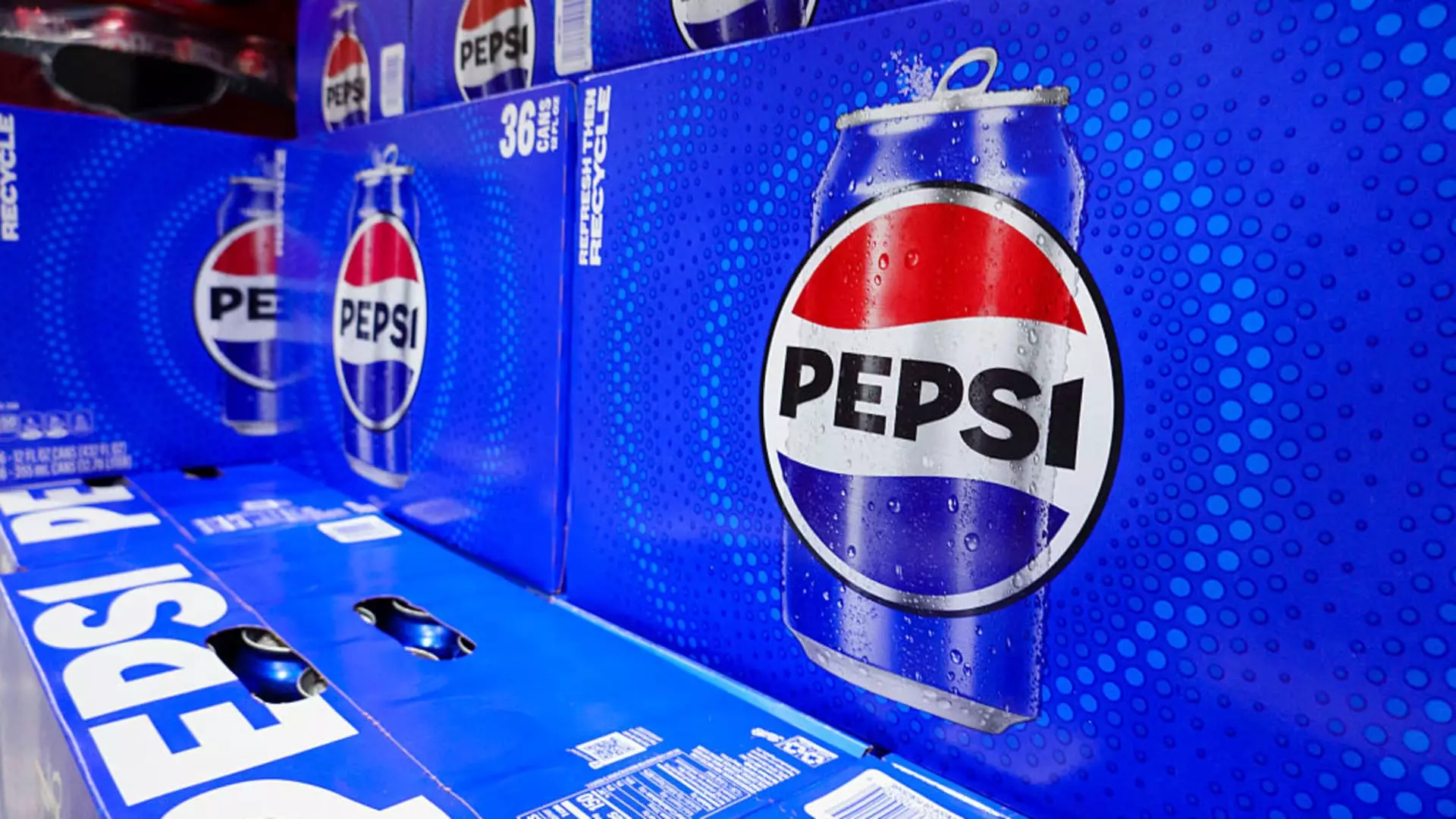PepsiCo’s recent financial report presents a paradoxical picture: a company that surpasses analyst expectations on paper, yet reveals much deeper vulnerabilities under the surface. While the headline numbers—revenue exceeding estimates and better-than-anticipated earnings per share—might initially suggest a resilient juggernaut weathering economic storms, a critical examination exposes the fragility of this veneer. The truth is, beneath the glossy surface, PepsiCo’s core challenges remain unaddressed, threatening its long-term stability.
Despite a modest 1% rise in reported revenue to $22.73 billion and organic revenue growth of 2.1%, the company’s recent performance betrays a declining demand environment. A 1.5% drop in worldwide food volume and stagnation in beverage volume signal eroding consumer interest. The North American food segment, which constitutes a significant portion of the company’s portfolio, experienced a 1% reduction in volume, and beverages saw a 2% decline—an ominous sign of shifting consumer preferences and increasing competition. CEO Ramon Laguarta’s reassuring statements about domestic improvements are, at best, superficial. The reality is that declining volumes are a symptom of a marketplace spiraling into saturation and innovation fatigue.
Surface-Level Optimism Masks Deep-Rooted Challenges
Pepsi’s reliance on strategic adjustments such as focusing on protein (Siete Foods, Sabra) and multicultural offerings indicates a reactive approach rather than a proactive transformation. While these initiatives might generate short-term footholds, they signal that the company’s traditional core products are losing ground among consumers seeking healthier, more authentic, and sustainable options. The company’s efforts to optimize logistics and cut costs—closing manufacturing plants and refining supply chains—are dramatic responses that suggest operational desperation rather than strategic strength.
Moreover, the focus on marketing ROI and cutting duplication between divisions hints at internal inefficiencies rather than innovative growth. These tactics are reactive attempts to patch up declining demand instead of pursuing transformative change. It’s clear that Pepsi’s leadership is caught in a cycle of short-term fixes—cost-cutting, branding adjustments, and strategic repositioning—while neglecting the fundamental need for product innovation and consumer engagement that keeps brands relevant.
A Dangerous Complacency in a Disruptive Market
Moreover, Pepsi’s prospects are further complicated by external macroeconomic and social dynamics. The cautious outlook—expecting only low-single-digit organic growth and unchanged earnings per share—reveals an underlying acknowledgment of economic volatility and evolving consumer habits. Yet, the company remains tethered to traditional revenue streams, failing to grasp that the market is demanding more transformative adaptation, not incremental tweaks.
The emphasis on cost reductions over innovation also risks complacency—an attitude that could leave PepsiCo vulnerable in a rapidly shifting landscape. Consumers increasingly prioritize health, sustainability, and authenticity, and if Pepsi does not radically rethink its offerings, it risks becoming marginalized as newer, more agile competitors capture the evolving tastes and values of modern consumers.
Potential for Center-Left Liberal Leadership to Drive Meaningful Change
From a center-wing liberal perspective, the way PepsiCo handles these challenges reflects both a missed opportunity and a cautionary tale about corporate responsibility. Companies are integral to societal progress, influencing health standards, environmental sustainability, and social equity. Pepsi’s current approach underscores a tendency to prioritize shareholder returns over meaningful innovation and societal contribution. To truly thrive, Pepsi must leverage its influence to推动 positive change—embracing transparency, investing in healthier product lines, and reducing environmental impact.
In essence, Pepsi’s strategy should evolve beyond mere financial metrics. It should become a leader in sustainable practices, health-conscious offerings, and inclusive marketing. This shift demands leadership willing to challenge the status quo and invest in research and development that aligns profitability with societal good. Only then can Pepsi regain consumer trust and ensure long-term relevance in a world increasingly defined by values as much as by profits.
While the company’s recent earnings might provide momentary relief, the bigger narrative remains unresolved: a giant teetering on the edge of irrelevance unless it reimagines itself as a forward-thinking, socially responsible powerhouse. The danger is not just losing market share but losing its moral footing in a society that demands more than just financial success. The future of PepsiCo hinges on whether it can transform its business model with the urgency and conviction that a rapidly changing world requires.

Leave a Reply